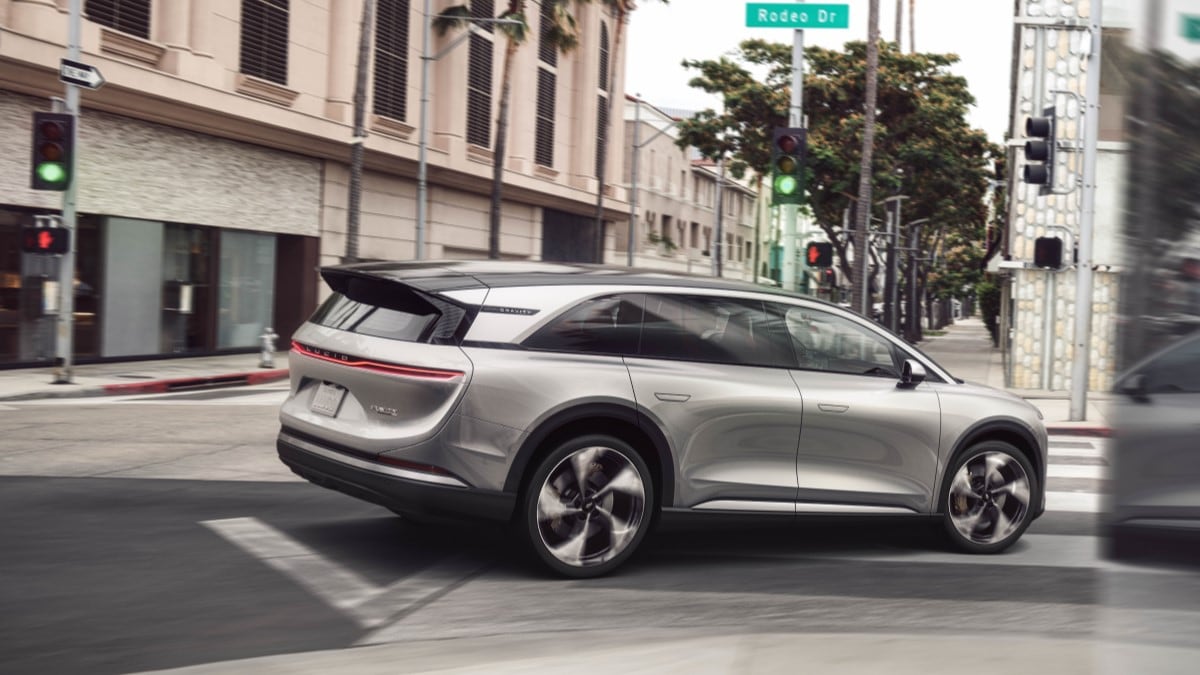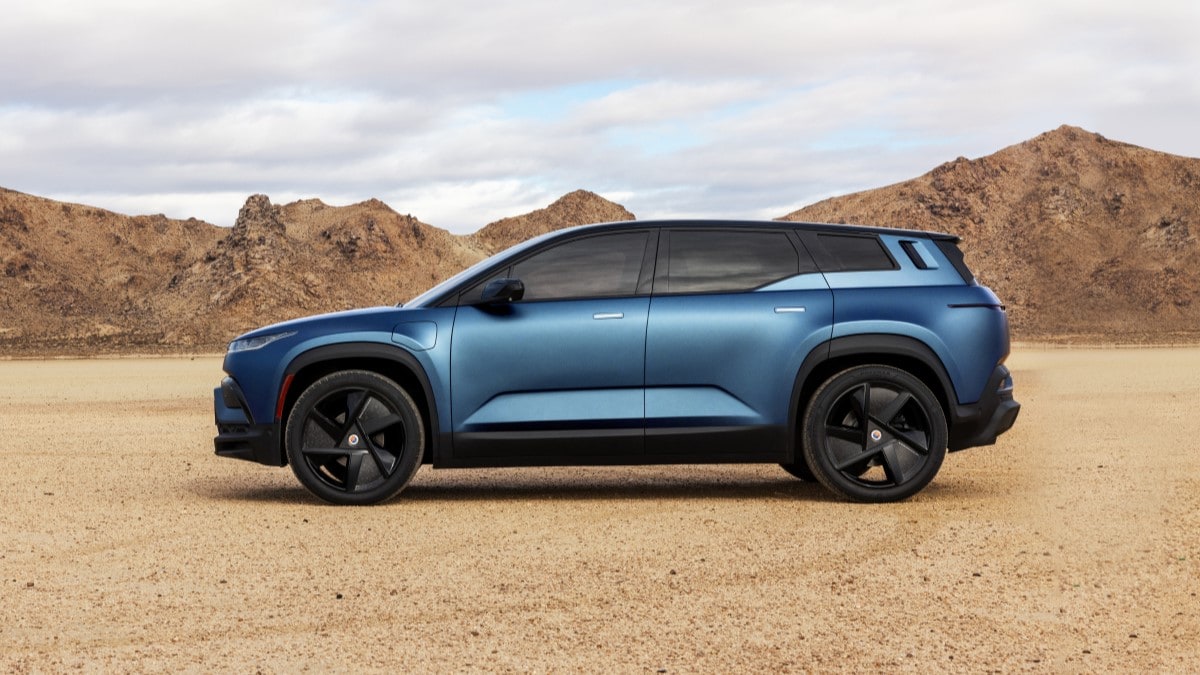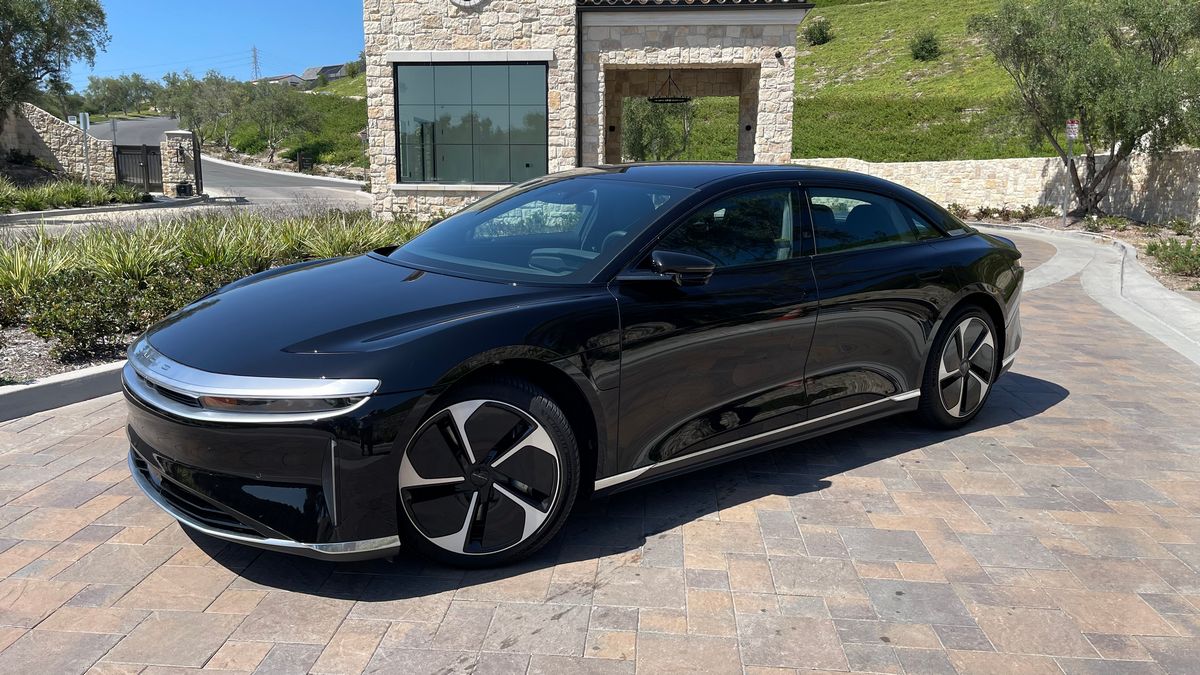Starting up a new automaker is one of the hardest challenges in business. But the rise of electric cars has tempted many people to try it. Two of the bigger startup names are in the news this week, and their fates illustrate the problems.
California-based Lucid saw its stock price dip this week on news of mixed first-quarter results. But it delivered more vehicles in the first quarter of 2024 than the quarter before. And the company reported enough cash on hand to survive another year.
Fisker, also based in California, may have received its final two blows. Fisker, already threatened with the prospect of bankruptcy, saw its factory partner say it doesn’t expect to produce another one of its cars, and Fisker has reportedly begun the process of closing its headquarters.
Why It’s So Hard To Start an Automaker
When you launch a car company, you must lose money before making money. You have to lose a lot of money, that is. For a long time.
Starting up a new automaker means buying or building complex factories full of robotics and hiring a massive manufacturing staff.
It means building a way to distribute cars to customers around the country and figuring out how to service and repair them from the inevitable door dings and suspension breakdowns.
If you start up a t-shirt manufacturer or even a kitchen gadget builder, you don’t have to convince potential customers that you’ll have a convenient way for them to make urgent repairs nearby. But an automaker needs those things.
Related: A Culling of EV Startups Is Growing Likely
Essentially, a startup automaker must absorb the cost of building a nationwide infrastructure and hope to make enough money to pay for it all later.
The most recent major success story – Tesla – saw its first profitable quarter selling cars 18 years after its founding.
Startups trying to follow its model have it even harder than Tesla did.
Tesla sustained itself through its long years of losses by selling regulatory credits to other automakers. But that option isn’t available to newer rivals. Now that almost every company builds an electric vehicle (EV), traditional automakers rarely buy credits.
Deep Pockets Matter More Than Good Products
In most industries, good products are enough to get a company off the ground.
In the auto industry, nothing is that simple. Good products can fail because of the infrastructure challenge.
The Endurance pickup from startup Lordstown Motors was a finalist in the 2023 North American Car of the Year awards in the truck category. It didn’t save that company from a quick bankruptcy.
The problem with a “lose money to make money” model is that you must have a lot of money to try it.
Lucid has a lot of money – since 2019, it has been majority-owned by the sovereign wealth fund of Saudi Arabia.
Fisker Inc. has a bevy of smaller investors but no single reliable source of funding.
This week, that difference shows.
Lucid Swims
Lucid told investors this week that it delivered 1,967 vehicles last quarter. That’s 233 more than the quarter before and “up 39.9% compared to Q1 2023,” the company says.
Lucid built its first car in 2021. The Air sedan – the only Lucid for sale today – gets up to 520 miles between charges in its longest-range form. That currently makes it the longest-range EV.
The company has mastered hype. It’s high-performance Air Sapphire makes 1,234 horsepower (cute) and gets from 0-60 mph in less than two seconds on stock tires – something even the Tesla Model S Plaid can’t do. It’s Formula 1 car acceleration with seating for five.

The company plans a second product – the Gravity SUV – for the 2025 model year. It shares the Air’s platform but adds seating for seven and a host of clever features like seating in the frunk (front trunk) and sliding second-row seats with their own tables.
Lucid told investors this week that the Gravity is on pace for a late 2024 production start.
The company, Yahoo Finance reports, “said it had $4.62 billion in cash and cash equivalents on hand, enough liquidity to last into Q2 of 2025.”
With a sovereign wealth fund behind it, Lucid can likely obtain more financing at that point if it has shown promising growth.
Fisker Sinks

Rival Fisker is in trouble.
Fisker Inc. is the second effort from famed car designer Henrik Fisker – the man responsible for the original BMW Z8 and the look of the Aston Martin DB9. His first attempt at creating a car company delivered about 2,000 Fisker Karma sedans before filing bankruptcy in 2013.
This time, he planned four products but built one. The Fisker Ocean SUV is already on the road and in customer driveways. With a range of up to 360 miles, stylish design inside and out, and intriguing features like an available solar roof that trickles a charge into the battery all day, it seems promising.
But recent reviews have shown significant software and performance problems with the car. The company behind it is quickly running out of money and options to survive.
Fisker doesn’t own its own production facilities. It contracts with automotive producer Magna Steyr to build its cars in an Austrian factory. Fisker and Magna Steyr agreed to pause Ocean production in March. Magna Steyr told investors this week it does not expect to resume building the Ocean.
Fisker has dramatically slashed prices on unsold Ocean models. That move, InsideEVs reports, “left owners who paid the original full price feeling cheated, seriously affecting the company’s image and credibility. The New York Stock Exchange even de-listed Fisker stock after its shares had reached an ‘abnormally low’ price.”
Sources inside the company told Business Insider this week that Fisker “has begun to close its Manhattan Beach office, the site of the company’s headquarters.”
Buying From a Startup Is a Risk
What does it all mean for car shoppers? We advise caution when shopping for an EV from a startup.
Making a five- or six-figure commitment to a company that may not survive long is risky. Should Fisker Inc. suffer its expected bankruptcy (and what would be the second for the Fisker name), Fisker Ocean buyers will likely find themselves with a completely unsupported car. Software problems may never be fixed. Spare parts for repairs may never exist.
Lucid buyers have slightly less worry about that, but that company’s survival isn’t guaranteed, either.
The hard truth is that shoppers now must evaluate not just the car they buy but also the company that builds it. We would note that dozens of EV models are available from established automakers with long-serving support networks.
Few would question whether BMW, Mercedes-Benz, Ford, or Hyundai will be around in 10 years to service a car bought today.








